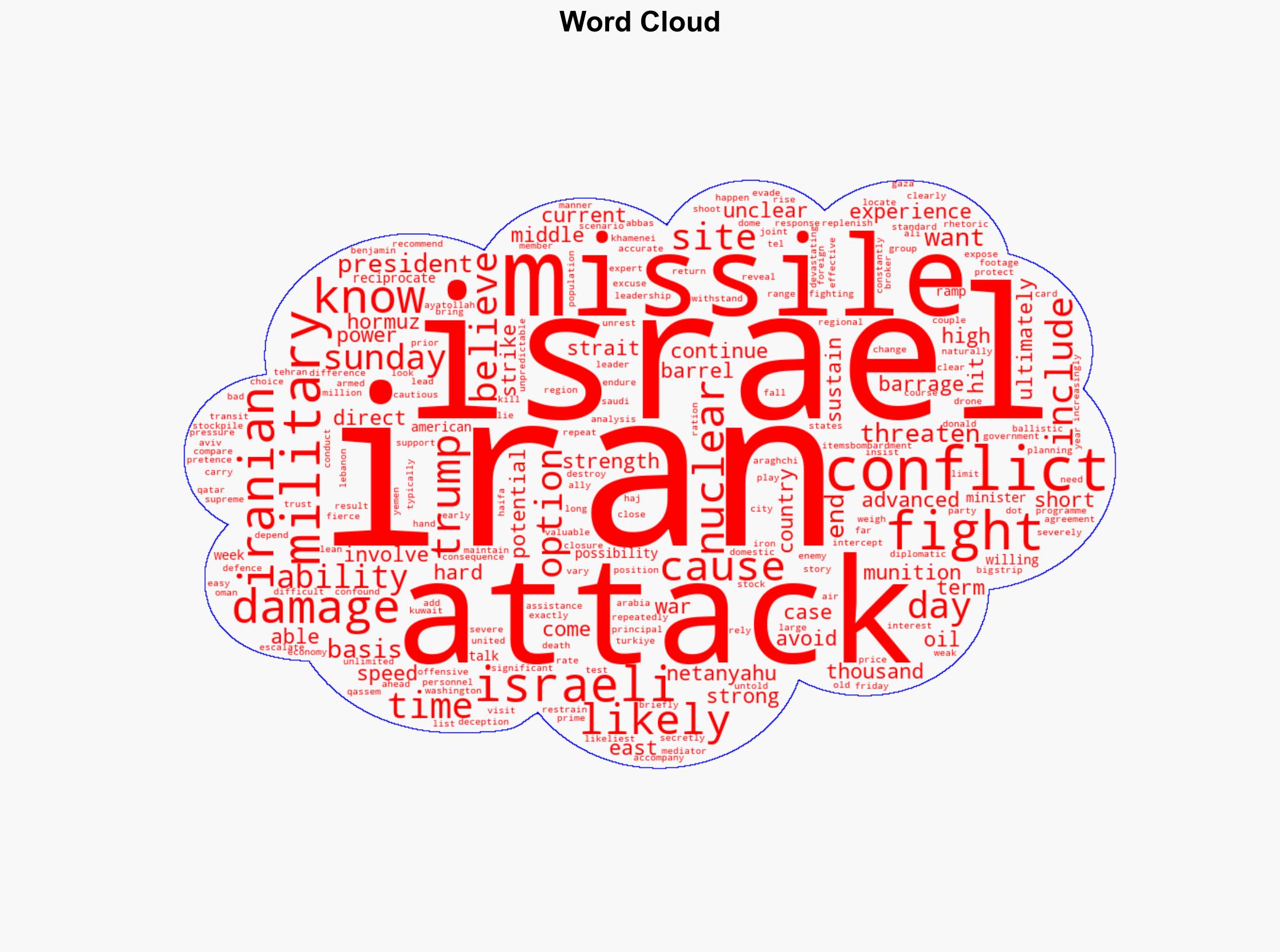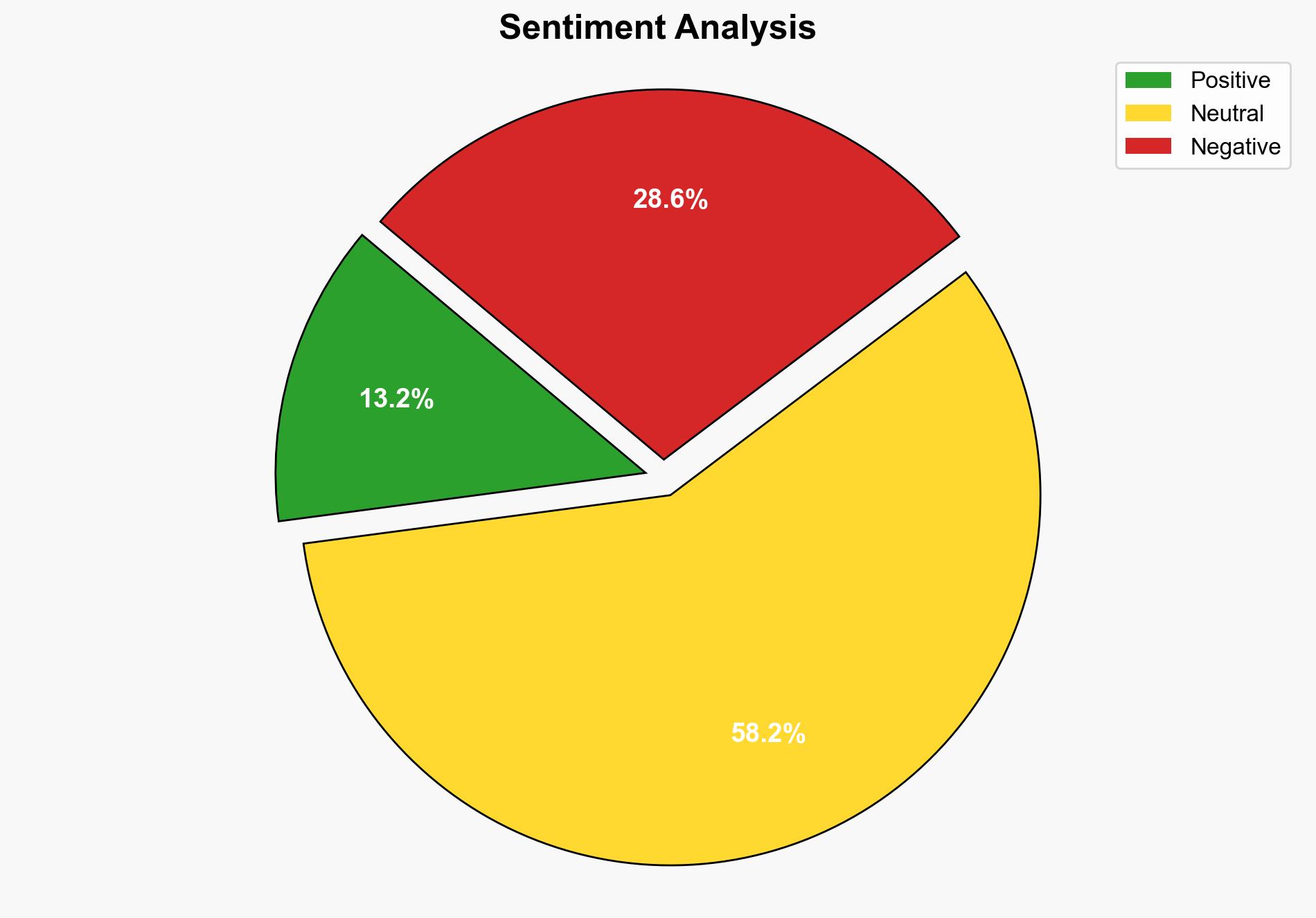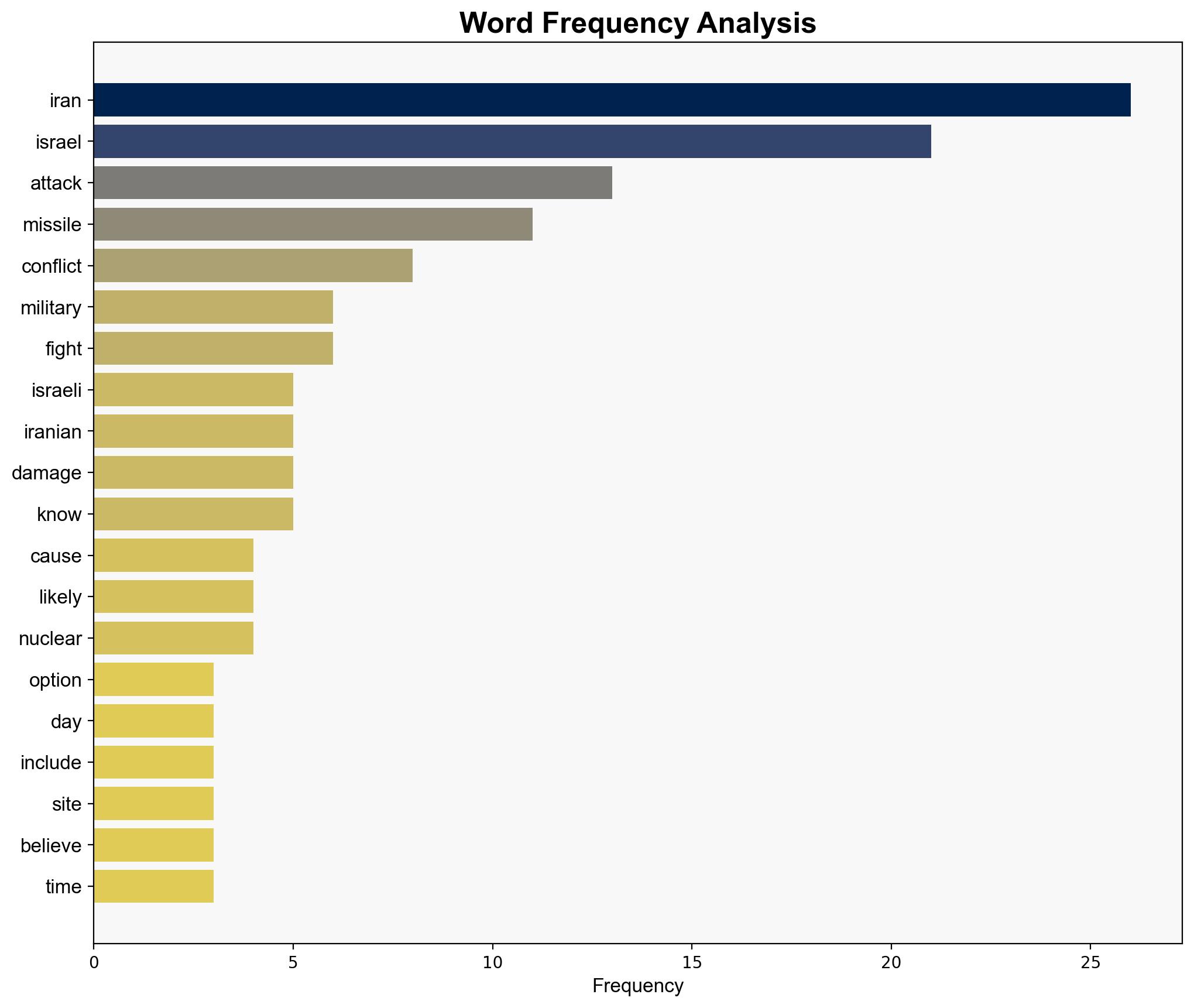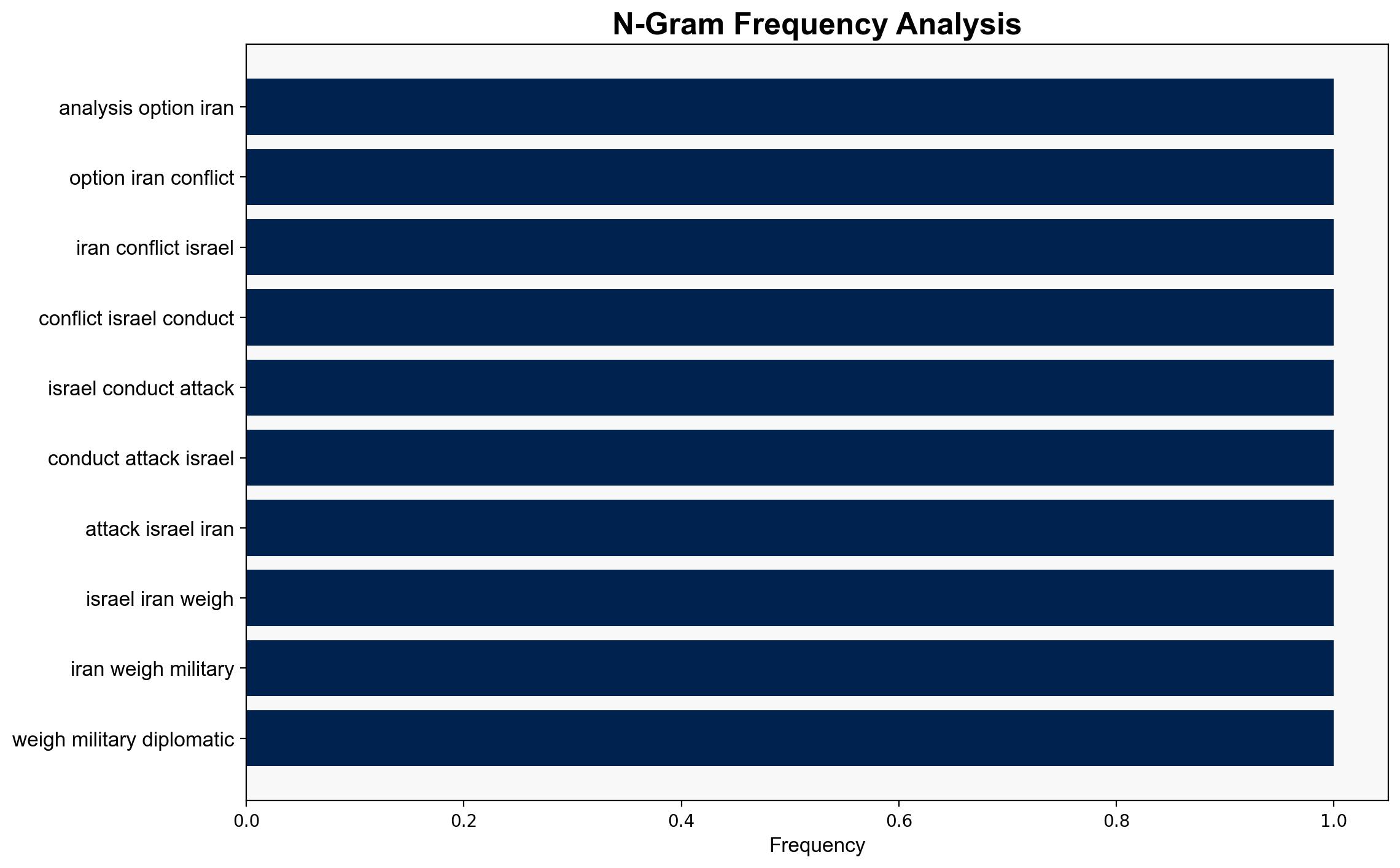Analysis What options does Iran have in its conflict against Israel – Al Jazeera English
Published on: 2025-06-15
Intelligence Report: Analysis of Iran’s Options in its Conflict Against Israel
1. BLUF (Bottom Line Up Front)
Iran’s strategic options in its conflict with Israel include military retaliation, leveraging diplomatic channels, and economic maneuvers such as threatening to close the Strait of Hormuz. The conflict has the potential to escalate into a regional war, impacting global oil markets and regional stability. Iran’s missile capabilities pose a significant threat to Israeli infrastructure, but sustained conflict could strain Iran’s resources and lead to international intervention.
2. Detailed Analysis
The following structured analytic techniques have been applied to ensure methodological consistency:
Causal Layered Analysis (CLA)
Surface events include recent missile exchanges and diplomatic tensions. Systemic structures involve regional alliances and military capabilities. Worldviews reflect historical animosities and strategic interests. Myths pertain to national narratives of resistance and defense.
Cross-Impact Simulation
The conflict could destabilize neighboring countries, disrupt oil supplies, and strain international alliances. Economic dependencies on oil exports make the Strait of Hormuz a critical pressure point.
Scenario Generation
Scenarios range from limited skirmishes to full-scale regional conflict. Diplomatic interventions could de-escalate tensions, while further provocations might lead to broader military engagements.
Bayesian Scenario Modeling
Probabilistic models suggest a moderate likelihood of continued missile exchanges, with a lower probability of full-scale war due to potential international mediation and economic repercussions.
3. Implications and Strategic Risks
The conflict poses risks of regional destabilization, economic disruption, and potential international military involvement. Cyber threats and asymmetric warfare tactics could further complicate the security landscape. The resilience of Iran’s missile program and Israel’s defense systems are critical factors in the conflict’s trajectory.
4. Recommendations and Outlook
- Enhance diplomatic efforts to mediate and de-escalate the conflict, potentially involving neutral parties.
- Strengthen regional alliances to deter further military escalation and promote stability.
- Monitor oil market fluctuations and prepare contingency plans for potential supply disruptions.
- Scenario-based projections:
- Best Case: Diplomatic resolution and resumption of nuclear talks.
- Worst Case: Escalation into a regional war with significant economic and humanitarian impacts.
- Most Likely: Continued low-intensity conflict with periodic escalations.
5. Key Individuals and Entities
Ayatollah Ali Khamenei, Abbas Araghchi, Benjamin Netanyahu, Donald Trump
6. Thematic Tags
national security threats, regional stability, military conflict, economic impact





